Europe is preparing for a Christmas season like no other, as governments desperately try to thread the needle between preserving public health and allowing families to gather for traditional celebrations at the end of a tough year.
Countries across the continent are taking varied approaches, even as Covid-19 cases continue to rise in some nations.
Here’s what European nations are planning this festive season.
Austria
Austria is opening ski resorts with limited capacity from Christmas Eve, for locals only. The country’s chancellor Sebastian Kurz said on December 2 that skiing could resume from December 24, for the festive period – but only for people living close to the slopes.
Kurz said skiing, at least for the day, would be possible “for a large part of our population.” But he added that lift capacity would be limited and hotels and accommodation providers would remain shut until January 7.
Restaurants, cafes, bars and clubs will also remain closed until January 7, according to Kurz, allowing for the possibility that if infection rates drop, the government may loosen restrictions.
But the limited relaxation of rules for locals has been accompanied by new quarantine requirements for travelers, which were unveiled by the government at the beginning of December.
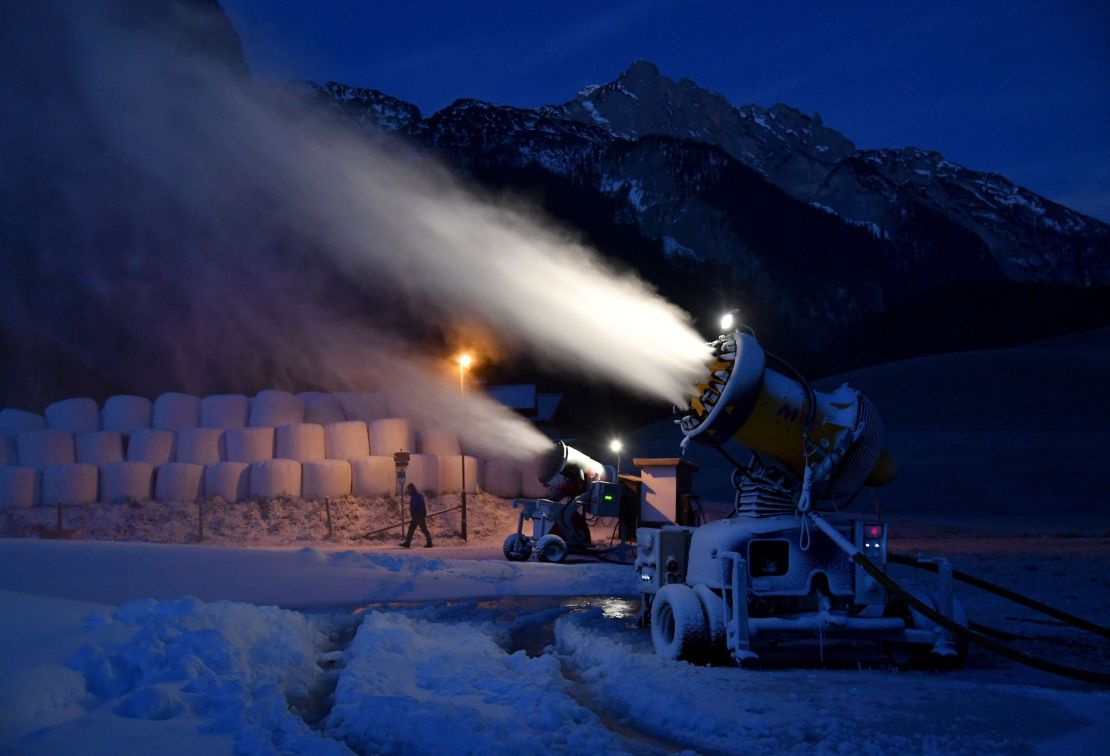
”Tourist travel is currently de facto not possible in Austria, in light of the measures against the coronavirus,” the government statement said.
The new rules mean that until January 10, all arrivals in Austria from a country with more than 100 Covid-19 cases per 100,000 people in the previous two weeks will have to quarantine for 10 days.
This period can be shortened if visitors test negative after five days in isolation.
(As of December 3)
Belgium
Belgium has allowed nonessential shops to reopen from December 1. Museums and swimming pools are also allowed to open, in accordance with their industry protocols.
But the country will continue to require people to comply with social distancing protocols over the festive break.
“During the Christmas period, social contact rules will continue to apply,” Belgium’s Consultative Committee said in a statement on November 30.
People living alone will be allowed to be with two other people, maximum, “on Christmas Eve or Christmas Day, to protect their psychosocial well-being,” the committee said. “For meetings outside, the rule of four continues to apply.”
A general ban on large gatherings remains in place, as does a curfew between midnight and 5 a.m.
Travelers will also be required to quarantine.
“Persons who have spent more than 48 hours abroad and who will remain in Belgium for more than 48 hours will be subject to stricter controls,” the committee said on November 30.
These measures will apply until 15 January 2021.
“At the beginning of January, the situation will be reassessed, based on the medical indicators, to see whether and for which industries a transition to the management phase … is possible,” the committee said.
(As of November 30)
Bulgaria
The Bulgarian government has extended the closure of nightclubs, casinos, restaurants and sports halls nationwide until at least the end of January.
A ban remains in place on events, conferences and visiting most retail shopping malls, except for businesses providing services such as banks, pharmacies, grocery stores and telecommunications companies.
From January 1, theaters, museums, galleries and cinemas can reopen, at 30% capacity.
Kindergartens, nurseries and classrooms for students from first to fourth grade will open after the holidays on January 4.
Dining areas in hotels will operate a shift system for breakfast, lunch and dinner, at no more than 50% of seating capacity and with a closing time of no later than 10 p.m.
On December 17, the country’s Ministry of Health reported 1,959 new Covid-19 cases.
(As of December 17)
Croatia
Croatia is still considering the measures for its Christmas period, but Health Minister Vili Beros said on December 12 that “he did not believe a strict lockdown would be imposed.”
Beros noted that though a possible travel ban between countries was being discussed, it was unlikely to be introduced, according to Croatia’s Public News Agency HIRA.
Meanwhile, Interior Minister Davor Bozinovic, who is the head of the national Covid-19 response team, has called on Croatians to avoid visiting friends and relatives over the holiday period.
All secondary schools in Croatia have switched to online classes.
After a spike in cases, Croatia announced new restrictions, which include “locking down cafes and restaurants, and a ban on wedding parties, fairs and most sports events.”
These restrictions will be in place from November 28 to December 21.
(As of December 12)
Cyprus
In Cyprus, the hospitality sector – bars, restaurants and cafes – will be shut until the end of the year. The stricter measures were announced by Cypriot Health Minister Constantinos Ioannou during the first week of December.
High school students have also switched from in-person classes to online ones.
Cyprus is also banning church attendance over Christmas. A 9 p.m. curfew and a ban on gatherings of more than 10 people in houses remain in place.
Retail and department stores can, however, remain open – under strict rules.
(As of December 14)
Czech Republic
The lower house of the Czech parliament has extended the country’s state of emergency to December 23 – one day before Christmas Eve, which is traditionally the main day of celebrations in the Czech Republic.
The Czech Republic has seen a surge in cases in recent months.
Its state of emergency was originally scheduled to end on December 12.
The government had sought an extension until January 11, arguing it was a necessary step to control the spread of the coronavirus.
(As of December 9)
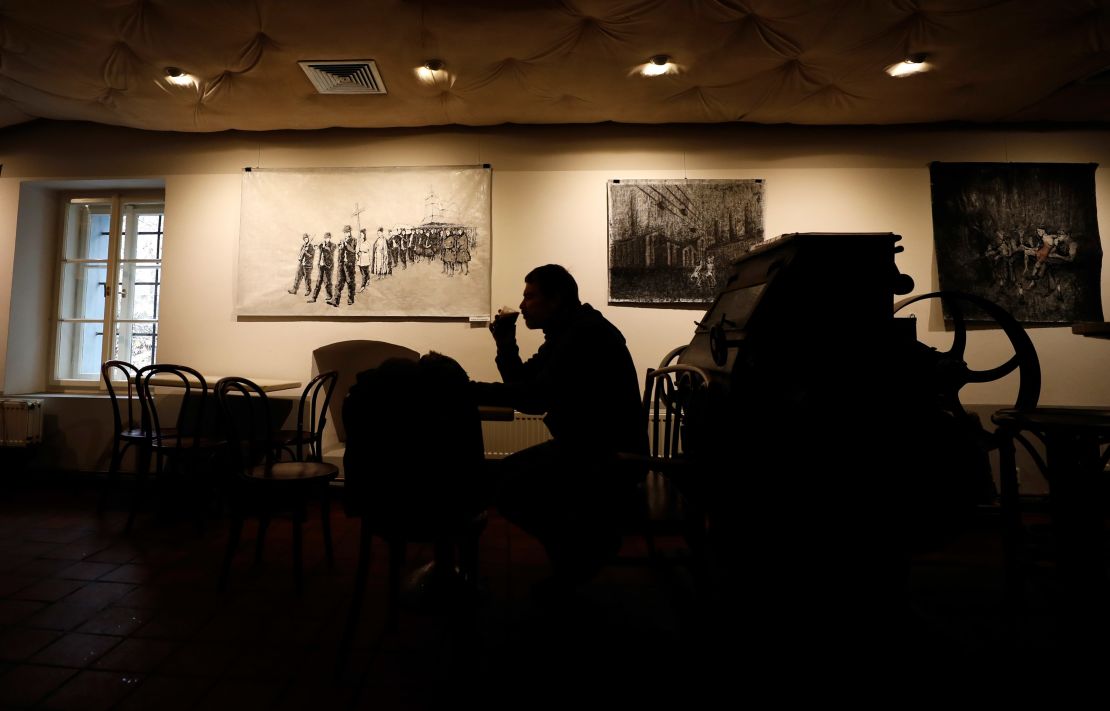
Denmark
Denmark will enter a national lockdown?over the Christmas period, after the country recorded its highest number of new coronavirus infections since the pandemic hit.
From December 25, all stores, except those that sell food and medicine, will be closed. Hospitality venues will be closed except for takeout. Shopping centers will be closed across the country from December 17 and businesses such as hair salons will close on December 21. The lockdown will last until January 3.
Hospitals will postpone all non-critical treatments for three weeks starting December 21, to prepare for a potential increase in cases.
Officials have recommended that people keep to a maximum of 10 people in private homes and a maximum of 10 social contacts during the Christmas period and on New Year’s Eve.
People in Denmark are allowed to see their closest family members on Christmas Eve, and these family members will not be included in the 10 social contacts.
Communal eating at social care institutions will be allowed for up to 50 people, in groups of no more than 10, on Christmas Eve and New Year’s Eve. Religious communities will be able to host services conforming with health and safety requirements.
(As of December 16)
Estonia
Estonia has recommended canceling “all joint events,” including Christmas parties, as part of new coronavirus measures that took effect from November 12, according to a government statement on November 10.
“Celebrating Christmas with family is, of course, allowed,” the statement added, noting that the cancellation recommendations apply to all events attended by people who do not come into daily contact.
The Estonian measures also include the mandatory wearing of face coverings in all public places, and a recommendation for all employees to work remotely, if possible.
Since November 16, the operating hours of bars, restaurants, and entertainment venues in Estonia have been reduced. All such venues must close at midnight and can have a maximum of 10 people per group.
(As of November 10)
Finland
Finland’s restrictions are set at a regional level, as opposed to a national one.
The number of participants at public events can be limited to 10 people and if necessary, events can prohibited altogether.
Restrictions for restaurants and cafes are separated into three levels, depending on the region, and remain in force until February 28, 2021.
Regions regarded as “stable” in terms of coronavirus transmission must stop serving alcoholic beverages by midnight.
Lapland faces harder restrictions than much of the country. Businesses there must stop serving alcoholic beverages by 10 p.m. and those that primarily serve alcohol must close by 11 p.m., while other food and beverage service businesses may remain open until midnight at the latest.
Pubs, bars and nightclubs in Lapland are only permitted half the normal number of customers in their premises at a time.
(As of December 14)
France
The French government on December 3 recommended that Christmas and New Year’s Eve gatherings be limited to a maximum of six adults – with no limit on children – due to the pandemic.
An easing of coronavirus restrictions in France scheduled for December 15 was delayed in light of new infection figures, French Prime Minister Jean Castex said on December 3.
Cultural venues including theaters, museums, and cinemas had been due to reopen on December 15, but they will remain closed for three additional weeks, Castex said.
France’s curfew – initially set from 9 p.m. to 6 a.m. – was extended from 8 p.m. to 6 a.m., Castex added.
An exception to the curfew will be made on Christmas Eve, but not on New Year’s Eve.
However, French citizens will no longer need administrative certificates to leave their homes, as of December 15, Castex said. Citizens will also be allowed to travel to other regions.
Restaurants and cafés are scheduled to reopen on January 20, 2021.
(As of December 10)
Germany
As of December 16, all non-essential shops, services and schools across Germany will close until January 10, 2021.
Christmas Day gatherings in the country will be reduced from 10 people to only five from two different households.
The restrictions come as Germany grapples with a surge in cases.
German Chancellor Angela Merkel said on December 13 that “the philosophy is to stay at home.”
Christmas church services will be subject to prior registration, and no singing will be allowed.
Alcohol will also be banned from all public spaces, and the annual New Years’ Eve fireworks display will be canceled.
German Finance Minister Olaf Scholz has pledged economic help for all businesses affected by the lockdown.
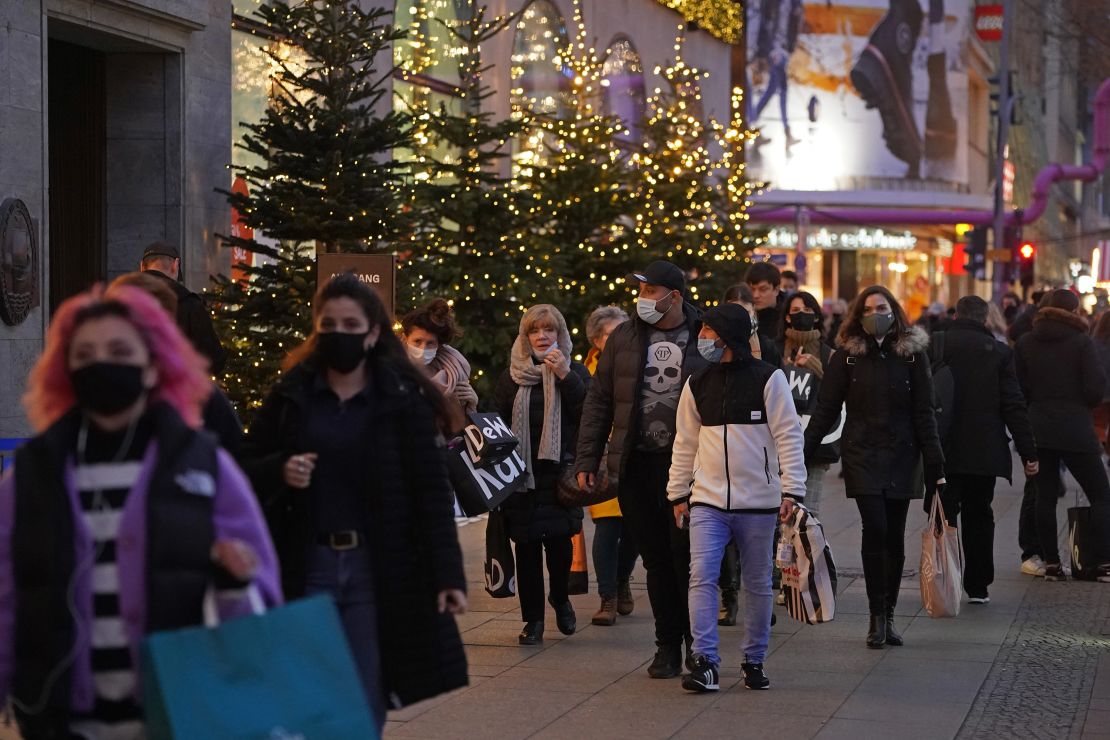
Some states are also implementing additional measures – Bavaria, for example, will have a 9 p.m. curfew.
Merkel has said she wants to implement a full lockdown for as long as two weeks after Christmas, to bring down infection numbers.
Berlin Mayor Michael Müller has said the German capital is set to implement “significant restrictions” in the run up to Christmas, to curb the spread of cases.
In Berlin, the Senate has closed schools and shops until January 10, 2021, and school vacations which are due to start on December 21 will be extended until January 10, with students having the option of attending online classes from January 4.
Müller added that retail shops could close as early as December 20, or at the very latest December 23.
(As of December 13)
Greece
Greece is extending most of its Covid-19 restrictions through the Christmas holiday period, government spokesman Stelios Petsas announced earlier this month.
Schools, restaurants and bars, entertainment venues, skiing centers and courts will remain shut until January 7, 2021.
A night-time curfew and a ban on movement between regions will also remain in place until then.
Petsas said that anyone entering Greece from abroad between December 18 and January 7 will have to quarantine for three days as a precaution, in addition to an already compulsory negative PCR test.
Retail stores will operate under the “click-away” method, which allows customers to collect goods from shop entrance.
Shopping inside most stores is not allowed. Seasonal shops, bookstores and hair salons will, however, be open throughout the Christmas period.
(As of December 15)
Ireland
The Irish government announced an easing of restrictions in November, following a six-week national lockdown.
From December 1, once-shuttered businesses such as hairdressers and nonessential retail outlets were allowed to reopen their doors. And December 3 saw the return of indoor dining in restaurants and gastropubs across the country.
From December 18 to January 6, travel between counties will be permitted once more, in order to facilitate Christmas celebrations.
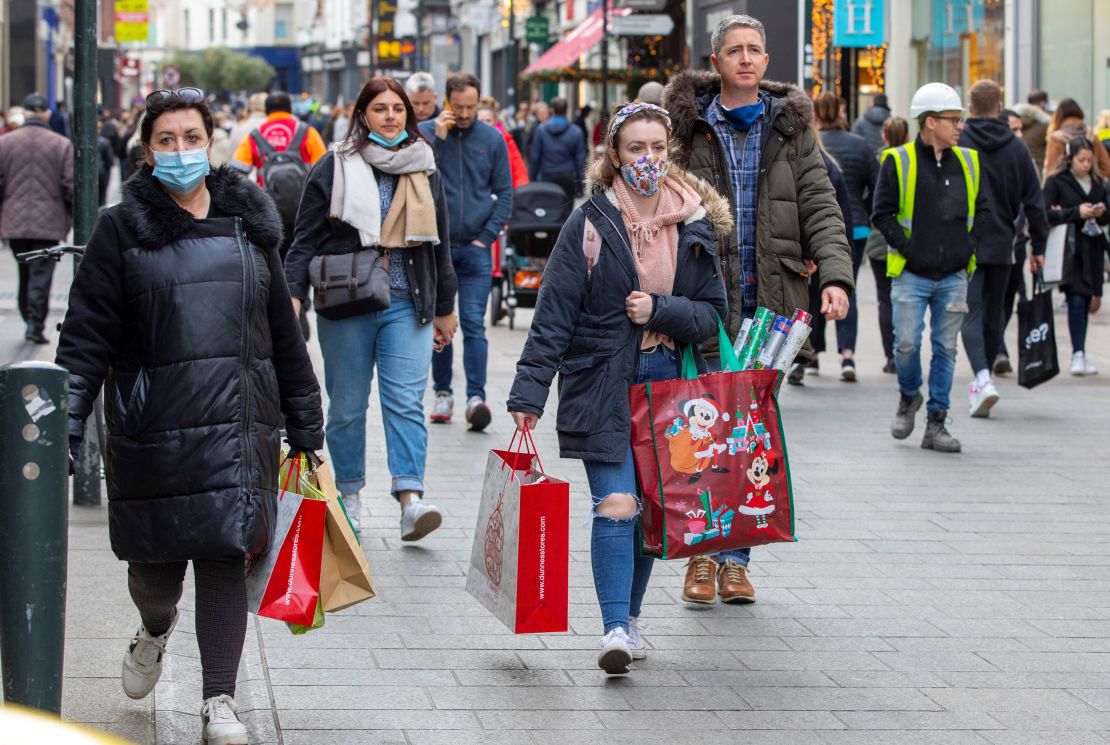
During this period a household may mix with two other households.
But despite the relaxed restrictions, fears of streets thronged with Christmas shoppers have prompted the Irish government to recommend the use of face masks in “crowded outdoor spaces where there is significant congregation.”
(As of November 28)
Italy
Italy has banned movement between regions during the Christmas holidays, to contain the spread of the coronavirus.
From December 21 to January 6, 2021, people will only be allowed to move from one region to another for work, health reasons and emergencies, according to a decree which came into force on December 3.
During this period, people will not be permitted to travel to their vacation homes.
On Christmas Day, Boxing Day and New Year’s Day, movement between municipalities will be banned, with exceptions for work, health reasons and emergencies. People will also be allowed to return to their place of residence.
Between December 24 and December 27, and on December 31, January 1, 2, 3, 5, and 6, the entire country will be declared a virus “red zone,” Prime Minister Giuseppe Conte announced on December 18.
This means residents can only leave their houses for health or work reasons or to cover essential needs (such as exercise or grocery shopping). Between 5 a.m. and 10 p.m. residents can also go out to visit a maximum of two non-household family members. Households can host two extra family members on Christmas Eve, plus children under 14 years old and disabled persons.
“We have thought of this measure to allow that minimum level of companionship that usually suits this period,” Conte said in a press conference.
Churches must close by 10 p.m., which rules out the traditional midnight Mass for millions of Italian Catholics. Sandra Zampa, an undersecretary at the Health Ministry, said on December 3 that the Christmas Eve Mass must end around 8:30 p.m. “so that worshippers can return home before the 10 p.m. curfew.”
On these days, all shops, bars and restaurants will be closed except for delivery and takeout.
On December 28-30 and January 4, the country’s risk level will be lowered to an “orange zone” and residents will be allowed to travel within their towns, but not toward big cities. A curfew will still be in place between 10 p.m. and 5 a.m.
In this period, shops may open until 9 p.m. but bars and restaurants will have to remain closed. The Prime Minister said approximately €645 million ($790 million) will be set aside to support the catering industry. Conte also said other activities hit by these measures will be eligible to access government funds.
(As of December 18)
Latvia
Latvia declared an emergency situation from November 9, 2020, until January 11, 2021.
Public events in the country are canceled and prohibited.
And until January 11, the operation of all cultural sites, including Christmas markets, is banned.
However, museums remain open to visitors.
Private events are also banned, except those within a single household.
Economic services related to entertainment and well-being – such as bars and nightclubs – are also banned from opening; restaurants are only allowed to provide takeout meals.
On weekends and public holidays only pharmacies, service stations and shops selling foodstuffs (except for alcohol) are allowed to operate.
People in Latvia are permitted to visit those who live alone and need care.
(As of December 14)
Lithuania
Lithuania has banned travel between municipalities from December 16 until January 3 to deter people from visiting relatives and friends over the holidays. People are still allowed to travel for work, for health reasons and to attend funerals.
Lithuania will set up roadblocks to stop Christmas travel, the health ministry press office told CNN. Police will set up 250 barriers nationwide and will patrol some checkpoints to enforce the Covid-19 holiday travel ban.
The checkpoints will be in place over the weekend of December 19-20 and again in the days surrounding Christmas and New Year. On other days, control will be carried out on a mobile basis. Similar restrictions were in place last Easter, police said.
The government ordered the closure of nonessential stores and hair salons from December 16 and told citizens to stay at home. Bars and restaurants have been closed for more than a month.
(As of December 16)
Luxembourg
The maximum number of visitors people can welcome into their homes in Luxembourg is two.
The country has also banned people from going out in public between 11 p.m. and 6 a.m.
Establishments serving food and drinks are closed to the public and any gathering exceeding 100 people is banned.
With the exception of museums, art centers, libraries and national archives, cultural institutions are closed to the public.
Places of worship are allowed to remain open, but visitors must respect social distancing rules and wear masks.
These measures came into effect on November 26 and will remain in place until January 15.
(As of December 15)
Netherlands
The Dutch government is dramatically escalating its lockdown to address rising coronavirus infections, according to national broadcaster NOS.
The government has mandated the closure of all nonessential stores, schools, hairdressers, museums, and theaters from December 15 until January 19, 2021, NOS reported, citing government sources.
Restaurants are closed for everything but take out.
Meanwhile, household visits are limited to a maximum of three guests, regardless of whether they take place indoors or outdoors. Children up to 12 are exempt from that cap.
(As of December 14)
Poland
Poland will enter a national lockdown from December 28 to January 17, with the closure of hotels, ski slopes and shopping malls as well as a New Year’s Eve curfew, Health Minister Adam Niedzielski announced on Thursday.
On New Year’s Eve, residents are instructed to “stay at home” and avoid gathering with anyone outside their household.
Movement will be prohibited throughout the country from 7 p.m. on December 31 until 6 a.m. on January 1, with the exception of necessary official activities.
A 10-day quarantine will be required for those returning to the country by public transportation.
“Interrupting Covid-19 transmission is the only effective way to win the fight against coronavirus. The Covid-19 vaccine will make it possible. Before we start the vaccination process, however, we must be especially careful and responsible,” Niedzielski said.
Cultural institutions – including theaters, cinemas, museums, art galleries and cultural centers, which have all been closed since November 7 – will remain closed until January 17.
Churches can allow in a maximum of one person per 15 square meters of space.
Anyone attending an outdoor event should maintain a distance of 1.5 meters (5 feet) and cover their nose and mouth.
Grocery stores, hotels, shops selling books and newspapers, pharmacies and free-standing large-format furniture stores will operate with limited function.
Restaurants can continue to offer takeaway and delivery services only.
Public gatherings in Poland are limited to five people; participants must cover their nose and mouth, and maintain a distance of 1.5 meters from each other.
Weddings, communions and parties are banned. Gyms and fitness clubs remain closed.
(As of December 17)
Portugal
On December 5, Portugal extended its state of emergency and coronavirus restrictions until December 23, but it did announce the relaxation of some rules for Christmas.
Between December 23 and 26, the country’s internal travel ban will be lifted and the mandatory curfews of 11 p.m. on weekdays and 1 a.m. on weekends will be extended.
Restaurants may also stay open later; until 3.30 p.m. instead of 1 p.m. at lunchtime, and 1 a.m. instead of 10 p.m. at night.
However, Portugal’s Prime Minister António Costa has said that the plan to ease restrictions over the holidays will be reviewed on December 18, and will only go forward “if the current downward trend in cases” continues.
Portugal’s internal travel ban will be reinstated over New Year, meaning public parties will be forbidden and public gatherings will be limited to six people, the government has said.
(As of December 5)
Romania
Romania announced additional coronavirus restrictions that will remain in place for 30 days from December 14; they include a ban on parties, and a night time curfew from 11 p.m. to 5 p.m.
Authorities recommend that citizens limit indoor gatherings during the festive period to close family and friends that they would normally see on a daily basis while maintaining social distancing. Hotels can only cater for guests at a certain capacity, determined by the number of infections within the local area.
(As of December 15)
Slovakia
Slovakia will close all schools and nonessential shops for at least three weeks, from December 21 until January 10, 2021.
Gatherings in the country are currently limited to six people, and cafes and restaurants are only providing takeaway services.
New restrictions are due to be announced this week.
(As of December 15)
Spain
Spain will ban movement between its regions from December 23 until January 6, 2021, Health Minister Salvador Illa announced on December 2.
Illa announced that family gatherings – with a maximum of 10 people – will be allowed on December 24 and 25, as well as December 31 and January 1.
A national curfew will start at 1:30 a.m. on these dates.
All regions will limit events and activities in order to avoid crowds during the festive period, Illa added.
Religious ceremonies are permitted to take place indoors, providing that capacity limits are observed; singing is not recommended.
(As of December 2)
Sweden
Sweden’s current limit of eight people for indoor gatherings will remain in place throughout Christmas and New Year.
(As of December 14)
Switzerland
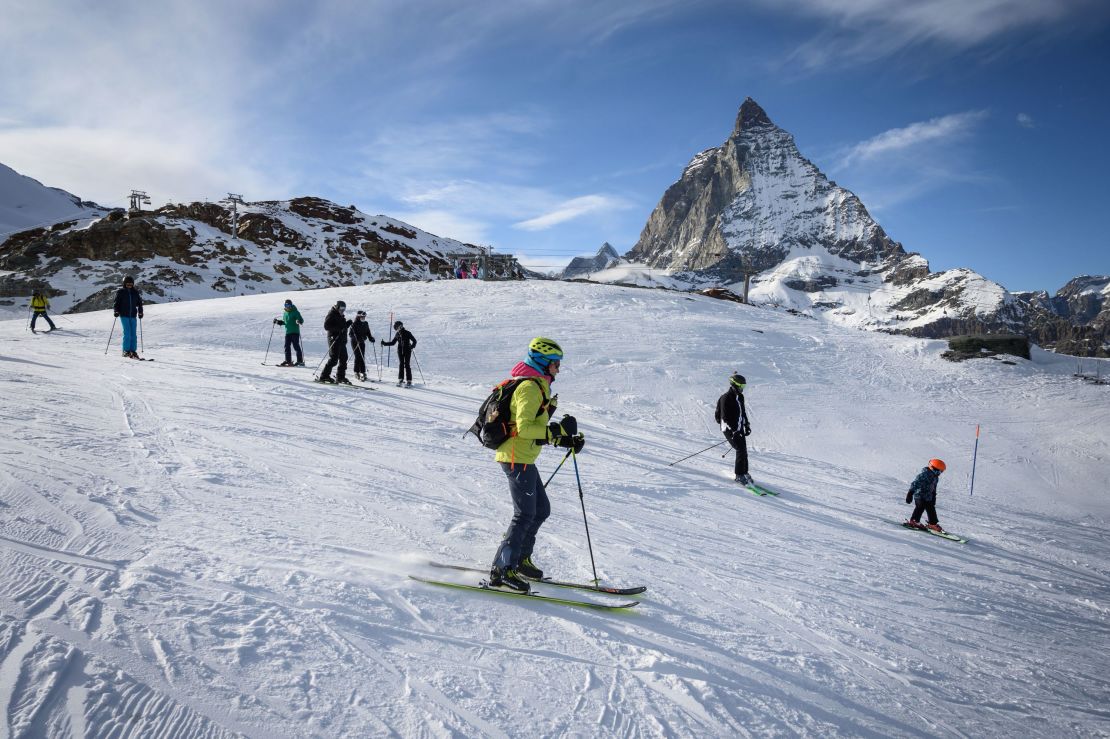
Switzerland’s federal council has announced a series of coronavirus measures ahead of Christmas, in an attempt to curb rising Covid-19 infection numbers.
They include the closure of bars and restaurants from 7 p.m.; sporting and cultural activities are limited to five people; markets and museums are to close on Sundays and public holidays.
Up to five people from two households can gather for private events, but that number will increase to 10 for celebrations from December 24 to 26, and on New Year’s Eve.
Swiss ski resorts have been permitted to open for domestic tourism, but strict coronavirus measures are in place in ski resorts.
(As of December 14)
United Kingdom
The UK has agreed to ease social contact restrictions during the festive period from December 23 to 27; people will be allowed to travel freely between the four UK nations to spend time with friends and family in an exclusive “Christmas bubble.”
But there has been conflicting advice from the leaders of the United Kingdom’s four devolved governments regarding the rules.
England, Northern Ireland, Scotland and Wales had agreed to allow up to three households to form a bubble, but said they should be “as small as possible,” and they cannot change, but with no maximum on the number of people.
However, Welsh First Minister Mark Drakeford on December 16 said that no more than two households should form a bubble in Wales.
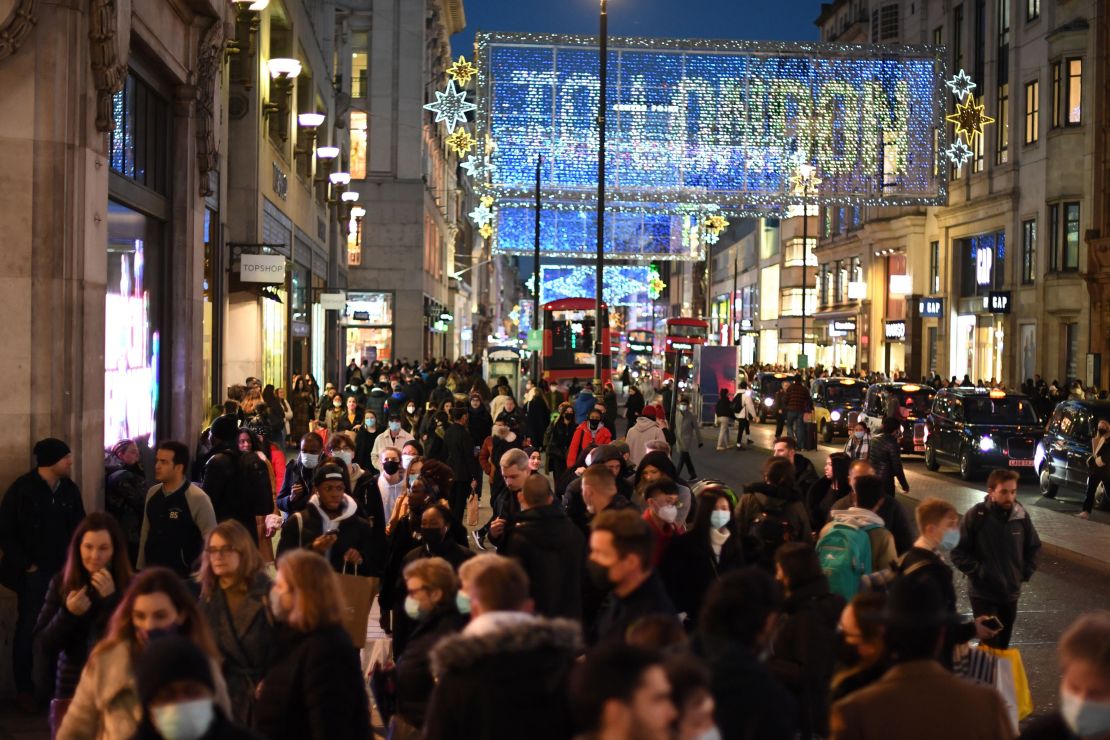
Households in Scotland, Wales, Northern Ireland and most of England are currently banned from mixing indoors in private homes.
Scotland will allow up to three households to form a bubble during this time, but it will restrict the number of people in any bubble to eight. There are no separate arrangements for New Year, when existing tiered restrictions will apply.
Northern Ireland will impose a six-week lockdown beginning on December 26, the region’s joint head of government, deputy First Minister Michelle O’Neill, said December 17. That means nonessential shops will close after Christmas Day in an effort to curb the spread of coronavirus.
Travel across the border to the Republic of Ireland has already been the subject of much debate. The current advice from the Northern Ireland Executive instructs those traveling outside the region for Christmas to do so between December 22 and 28.
(As of December 17)
CNN’s Nicola Ruotolo and Mia Alberti contributed to this report.
















